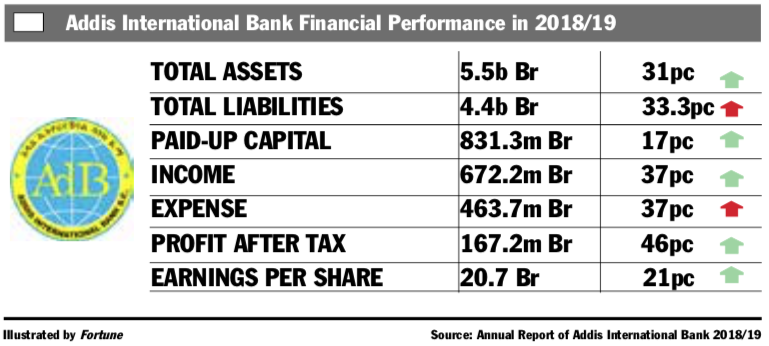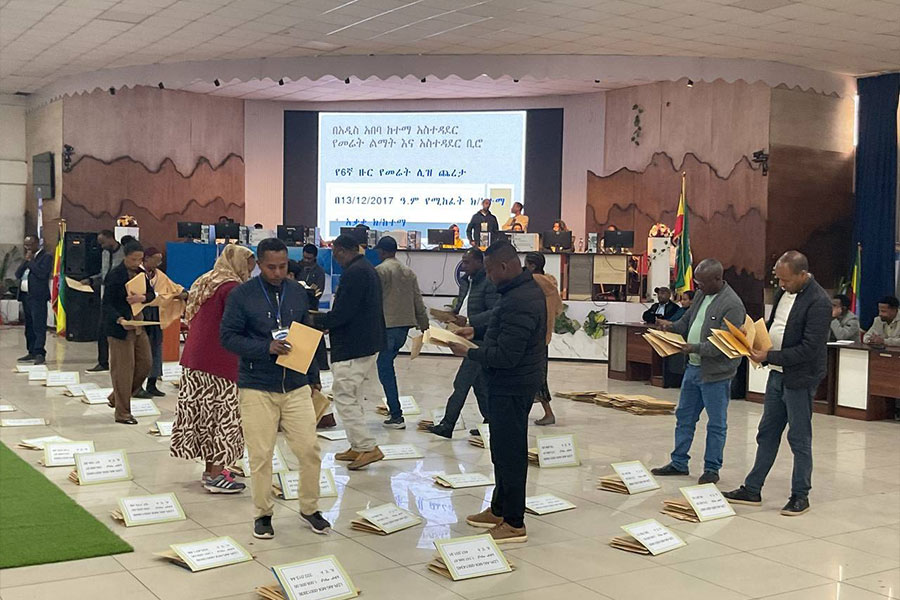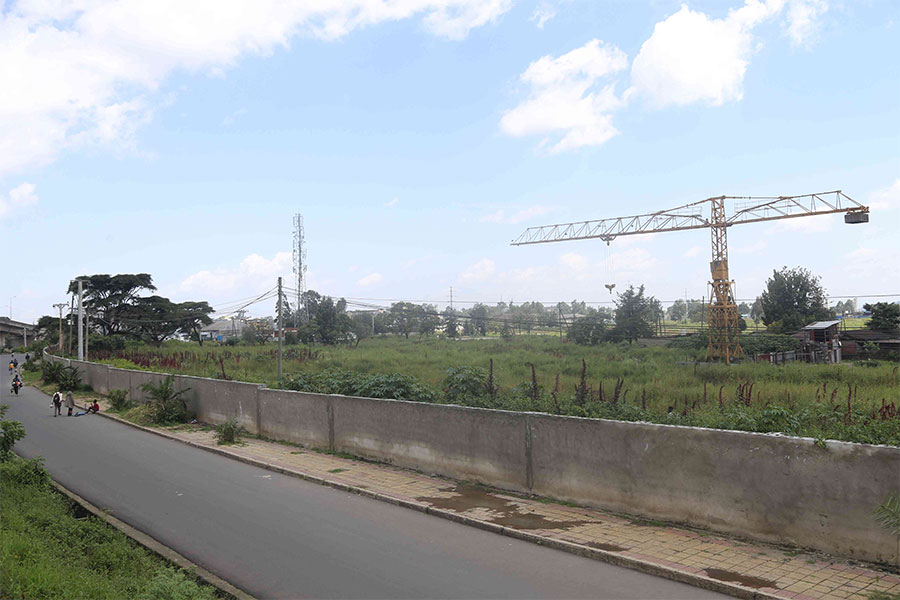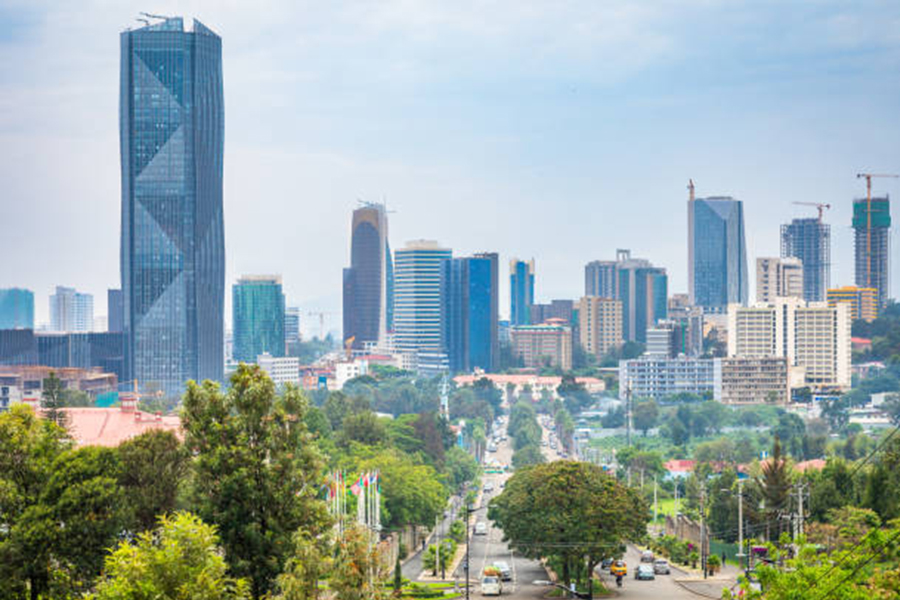
Fortune News | Dec 28,2019
Oct 19 , 2019
For young people struggling to get their lives going in Addis Abeba, whether it is finding employment or starting a business, or renting a place or even getting good service at a restaurant, the system seems to be rigged against them writes HANNA HAILEin this week's View from Arada.
I have been preparing to start my own business these past few months. As everyone who has lived in Ethiopia knows, this is not an easy endeavor. It is a difficult road made worse by misinformation, minimal guidance and mass confusion. Yet each day, new businesses open up in Addis Abeba and around the nation in the hopes of a brighter future.
Ethiopian businesses usually have relied on making their own sacrifices and maneuvering the system to the best of their abilities. The systems are not mature enough, and too many businesses fail before they have a fighting chance.
As my friend shared with me about his family business, “If tomorrow there is better business to be made by flipping my family business to something else, I will do it.” There is no such thing as building a legacy in Ethiopia. It is only about the money. The risk of business in Ethiopia is one that does not cater to mistakes or creating legacies. The system is unforgiving to those who are trying out new things.
While we can empathize how difficult it must be to create a functional city, who is empathizing with those who wish to build a dream? Offices are death beds of broken dreams. We are a nation that does not have much capital, but it has its people.
As I walked into a house that had peaked my interest, the man renting out the space pulled up his buckle, puffed his chest out and said, “It was a German couple who had been living here.” As I was leaving the property that I had fallen in love with, another caucasian man was entering the space with his staff. My small business was contemplating renting this space, yet I was sure I could not offer anything close to what the NGO could offer. The irony was not left on me. This foreign NGO was coming to my country to help people as it destroyed the rental market for small businesses.
While this journey is only the beginning, what remains also makes me weary. Helpful dispositions take the burdens off of each other. We are to build a nation together; our successes are tied together. We need to get people to believe in a higher vision again. Today it feels like everyone is scrapping for parts of an Ethiopia that no longer exists.
While in Ethiopia we expect that we will be misinformed at public offices and that when we order the food at a restaurant more times than not, we will get the wrong meal or receipt, why does the burden of correcting that lay with the customer? Why is it not the case that the office can admit when it is wrong and offer a solution that does not solely involve the service recipient the headache of making everything right.
A friend of mine that works at a high-end hotel in Addis Abeba divulged to me, “Our hotel throws out all the food that is left over.” I probe “but in a country like Ethiopia with so many homeless and hungry people, how could that be the case?”
She insists, “Imagine if one of them gets sick and sues us?” I laugh because in Ethiopia, restaurant goers have at one time or another taken ill because of food poisoning, and I have never heard of anyone successfully suing any restaurant. Yet this high-end hotel is afraid donated food recipients would sue, which is entirely laughable.
The systems laid out in Ethiopia are rigged against the people. It is simply not one conducive to learning and growing, but one to failing and no longer having strength to get back up. They simply fail and disappear with only personal lessons learned.
If more businesses can flourish, we can build national wealth, not tied to the validation, acceptance or handouts from others.
Someone recently said, "We scream too loudly in order to hide our inabilities.” Our inabilities may not be drowned out by merely making regular citizens carry the burden of governmental systemic failures. Crushed citizens are those who risk their lives in the Mediterranean rather than believe their individual success is the nation's triumph. I believe we will get there when we all unite at the higher vision of a country we would like to build.
PUBLISHED ON
Oct 19,2019 [ VOL
20 , NO
1016]


Fortune News | Dec 28,2019

Fortune News | Feb 08,2020

Fortune News | Apr 02,2022

Fortune News | Sep 07,2025


Fortune News | Oct 24,2020

Fortune News | May 23,2025

Sunday with Eden | Mar 30,2024

Radar | May 25,2019

Commentaries | Feb 27,2021

Dec 22 , 2024 . By TIZITA SHEWAFERAW
Charged with transforming colossal state-owned enterprises into modern and competitiv...

Aug 18 , 2024 . By AKSAH ITALO
Although predictable Yonas Zerihun's job in the ride-hailing service is not immune to...

Jul 28 , 2024 . By TIZITA SHEWAFERAW
Unhabitual, perhaps too many, Samuel Gebreyohannes, 38, used to occasionally enjoy a couple of beers at breakfast. However, he recently swit...

Jul 13 , 2024 . By AKSAH ITALO
Investors who rely on tractors, trucks, and field vehicles for commuting, transporting commodities, and f...

Oct 18 , 2025
The political establishment, notably the ruling party and its top brass, has become p...

Oct 11 , 2025
Ladislas Farago, a roving Associated Press (AP) correspondent, arrived in Ethiopia in...

Oct 4 , 2025
Eyob Tekalegn (PhD) had been in the Governor's chair for only weeks when, on Septembe...

Sep 27 , 2025
Four years into an experiment with “shock therapy” in education, the national moo...